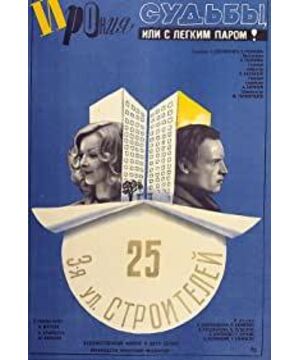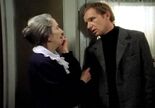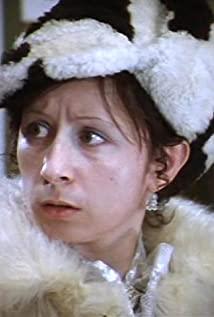Of course, the situation in Hong Kong and the Soviet Union is just the opposite. Hong Kong can no longer shoot movies at will. At least tertiary movies, ghost movies, gambling movies, and gang movies can't be shot. Of course, this is not only because of the "care" of the State Administration of Radio, Film and Television. After all, these films can still be shown in Hong Kong. The problem is that which film does not want to maximize profits. If you want the Mainland market, you must follow the rules of the game in the Mainland. You have to compromise. Do you have the courage to abandon the mainland market like Johnny To? Hollywood doesn't dare either.
Unlike Hong Kong, with the disintegration of the Soviet Union (to a certain extent), Russian films can be made at will. However, the problem also arises. The film with the most unique Russian charm is precisely the main theme of the Soviet Union. You make commercial films. Can you live the United States? You make literary films, except for Tarkovsky, have you ever done Western Europe? Especially for Chinese audiences, Soviet films are truly irreplaceable. Soviet cinema itself is the mouthpiece of the Soviet government and serves Soviet policy. The biggest policy of the Soviet Union is to promote the beauty of the socialist system, which is also the core content of Soviet films. I like Soviet movies very much. In this affection, ideas play a very important role. If you ask who is most impressed by Soviet movies, it must be Chinese. The same ideology brings us a kind of sympathy.
In the end, the Soviet Union failed to build socialism. However, the imaginary socialism appeared in Soviet movies. In the movies, the socialist countries are so beautiful and people's lives are so happy. It will really make you indulge in it and reluctant to extricate yourself. This November holiday, I was fortunate to once again dream of returning to the Soviet Union through a movie, and watched a three-hour movie "Trick of Fate". This film is one of the "Trilogy of Sadness and Joy" by the famous Russian director Liangzhanov. Some people may not know this director. If you talk about the other two of the trilogy, it is estimated that everyone will suddenly realize that it is him. The other two movies are "The Station for Two" and the famous "Story of the Office". In addition, "The Adventures of Italians in Russia" was also written by him. In Russia, he is nicknamed "the person every dog knows". Ryazanov's films have the traditional theatrical structure, superb lines, and nice and embarrassing soundtrack. Needless to say, the story of "The Office", the song "My Heart Can't Be Peaceful" is a household name. It doesn't matter if you haven't heard of the name, you will know it as soon as you hear it. And this "Trick of Fate" takes the music to the extreme.
I personally think that Ryazanov is definitely a representative of the Soviet Union's small and fresh people. In his films, he never emphasizes the virtues of socialism and simplicity. On the contrary, he yearns for the quality of life. If the food, clothing, housing and transportation described in the movies filmed in the 1970s were brought to China, it would definitely be a poisonous weed of capitalism. On the spiritual level, the protagonists yearn for love, talk about poetry, and play light music, which is undoubtedly corrupt. Every episode in "A Trick of Fate" is as good as Teresa Teng's song. The protagonists' openness to love is definitely out of the streets and two alleys of "Love in Lushan". As for the lines infiltrated with the blood of Russian literature, they are even more refreshing. There is such a detail in "The Story of the Office" that Comrade Anridol Jerimdovich Novaseltsev read an impromptu song to Comrade Rodnila Bologofievna Kalugina. He was young Time "written" poetry. Comrade Lord Nila Borogofievna Kalugina commented on this: Dear Comrade Anridol Yerimdovich Novaseltsev, this poem is simply great, especially so To my surprise, I didn't know that your pen name was Pasternak when you were young.
Sometimes I wonder, is the environment at the time supporting such works, or is the author's yearning for a better life making him do his best to dance with shackles? Maybe it's both. As far as I have seen, not talking about politics is a feature of Ryazanov’s films, but his values and what he loves faintly contradict the spirit of socialism. His films are even more important. Open and more international, and this perspective is intertwined with the background of the socialist Soviet Union, presenting a wonderful image feature. Perhaps this is like the 80s we have crazily reminisced about over the years. It not only retains the equality of the past, but also injects the elements of freedom later, so it presents an indescribable and wonderful atmosphere that makes people feel that they don’t want to move forward. Don't step back, just stay here. Although all this is probably a misunderstanding.
Maybe my impression of Ryazanov is just a misunderstanding, but I don’t care about these. In a quiet night, I was immersed in a three-hour tragic and joyous story, witnessing the utopia that all mankind once yearned for. In the end, tears of happiness burst into tears. That's enough. Isn't that the meaning of life?
View more about The Irony of Fate, or Enjoy Your Bath! reviews







